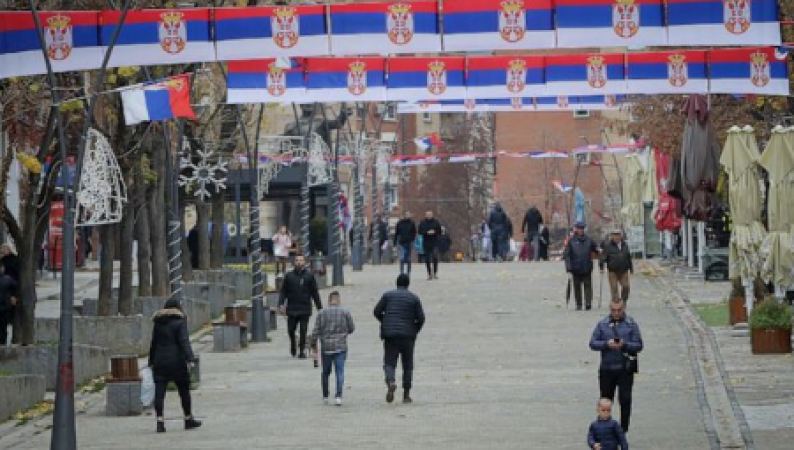
Pristina: Kosovo on Saturday postponed local elections scheduled for December 18 in four municipalities with majority ethnic Serb populations, in an effort to ease recent tensions there that have also strained relations with neighboring Serbia.
Despite admitting that it was highly unlikely that NATO would accept their formal request, the Serbian president said that he would nevertheless do so in order to deploy Serbian forces in northern Kosovo.
The deployment of Belgrade's army in the former Serbian province could significantly increase regional tensions.
Also Read: What is at risk in Turkey's latest escalation of its conflict with Syria?
After a meeting with his nation's political elite, Kosovo's President Vjosa Osmani decided to hold elections in the northern municipalities on 23 April next year.
Elections were necessitated in northern Mitrovica, Zubin Potok, Zvekan and Leposavic after ethnic Serb representatives resigned from their posts in protest against the Kosovo government's decision to outlaw license plates issued by Serbia in November.
Additionally leaving their positions in local government were Serbian legislators, prosecutors and police.
There has been considerable tension in the north ahead of the scheduled polling. This week, unidentified shooters wounded a police officer in Kosovo, damaged some polling stations, and gunshots were heard in those areas.
Kosovo's interior minister, Zellal Zavekla, claimed on Saturday that "extremist groups" have blocked some roads in the north following the arrest of a former Serb police officer accused of attacking polling places and election officials.
Recently, the presence of the Kosovar police was increased in those areas, and the EULEX Rules of Law mission, which included police officers, was also present.
Also Read: Peru's president requests the Cabinet to sign a pledge against corruption
In 2008, Kosovo declared its independence from Serbia. But Belgrade, with the support of China and Russia, has refused to accept Kosovo's independence.
Serbian President Aleksandar Vucic said on Saturday that Belgrade would formally request the head of a NATO-led peacekeeping mission to deploy Serbian troops in Kosovo, but added that he had "no illusions that it would be accepted". "
The Serbian prime minister announced the request on Friday, claiming that the lives of the minority Serb population in Kosovo were at risk.
A UN resolution that officially ended Belgrade's bloody campaign against majority Kosovo Albanian separatists in 1999 allows the withdrawal of some 1,000 Serb troops in Kosovo, according to Serbian officials. NATO bombed Serbia to end the conflict and expel its forces from Kosovo.
Serb troops would need permission from NATO-led peacekeepers in Kosovo since the war, which is highly unlikely as doing so would essentially mean changing the security of Kosovo's northern regions, which are home to Serbs.
According to the office of Kosovo Prime Minister Albin Kurti any such action by Serbia would be an "act of aggression" and a sign of "Serbia's tendency to destabilize the region".
Also Read: 8 people chosen by Japanese billionaire Maezawa to travel to the moon
Serbia and Kosovo have been warned by the European Union to settle their differences and normalize their relations in order to qualify for membership in the organisation.